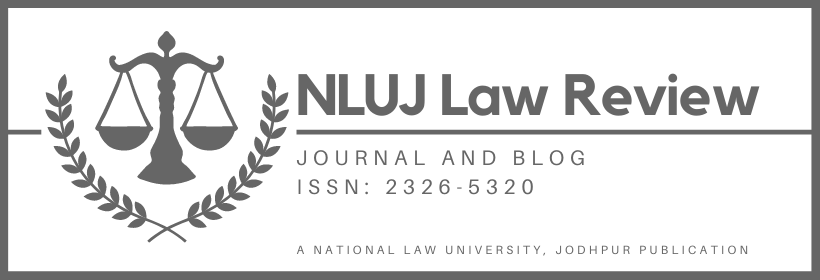The Centrotrade v. Hindustan Copper Limited (“Centrotrade”) saga is concerned with a set of 3 judgments in 2006, 2016, and 2020, by which the Supreme Court of India (“Supreme Court”) upheld the validity of two-tier arbitration clauses in India, in consonance with the provisions of the Arbitration and Conciliation Act, 1996 (“the Act”) and the Indian Contract Act, 1872. Two-tier arbitration refers to an arbitration structure in which the party/parties dissatisfied with the original award may appeal to an appellate arbitration forum, as decided in the arbitration agreement, under the normal grounds of appeal. This blog will delve into the question of validity of the original award upon the setting aside of the appellate award, in the context of domestic two-tier arbitration.
Legal Points and Grounds of Challenge
While an appeal goes into the merits of the decision, a challenge under section 34 of the Act is limited to the grounds mentioned therein, and does not entail a merit-based review of the award. An order setting aside the appellate award under Sections 34(2): (a)(i), (a)(ii), (a)(iv) & (b)(i), would ipso jure hold the entire arbitral proceedings including the original award, void. Thus, the present discussion is limited to the remaining grounds under Sections 34(2): (a)(iii), (a)(v) & (b)(ii), and 34(2A).
Validity of Original Award upon Annulment of the Appellate Award
With regards to the validity of the original award after the setting aside of the appellate award, the author would discuss arguments for both the sides.
- The original award does not regain validity:
It may be argued that the first award ceases to exist when the appeal preferred against it, is disposed off. It is the appellate award (which may affirm, modify or reverse the original award) that carries legal validity and enforceability, and not the original award. Therefore, the setting aside of the final award would not make the original award valid, since it cannot be brought back to life once the appeal has been disposed off.
The author states that the principles governing the mechanism and structure of statutory appeals would also be applicable to arbitration appeals. To establish the same, reliance is placed on the decision in M.A. And Sons v. Madras Oil (“M.A. & Sons”). The Supreme Court in Garikapati Veeraya v. Subbiah Choudhry (“Garikapati”), while dealing with the statutory appeals, set out the principle, “That the legal pursuit of a remedy, suit, appeal and second appeal are really but steps in a series of proceedings all connected by an intrinsic unity and are to be regarded as one legal proceeding.” The Madras High Court in M.A. & Sons applied this principle to the arbitration appeal proceedings and clarified that if an arbitral appeal is preferred, it is the final award that governs the parties. The underlying basis of this principle can be traced to the ‘doctrine of merger’, which would therefore also be applicable to arbitration appeals.
The doctrine of merger provides that when an appeal is finally disposed of, the decision of the lower court ceases to exist in the eye of law and merges in the appellate decision, which is the only decision that subsists and remains operative, even if it merely affirms the original decision. Thus, the original award loses its validity and enforceability. This was recognized by Justice Chatterjee who rejected the counter-contention that the final award was an ‘admixture’ of the two awards, while holding two-tier arbitrations valid, in his 2006 Centrotrade judgment.
Further, with regard to setting aside the award, the Delhi High Court in State Trading Corporation v. Toepfer explained that the annulment of an award, which requires a challenge to the legitimacy of the decision-making process, renders the annulled portion void, relegating the parties to their original litigating positions. Thus, having regard to (i) the principle set out in Garikapati, that the original remedy and its appeal are one legal proceeding connected by an intrinsic unity; and (ii) the doctrine of merger whereby the original award ceases to have its own legal existence, it is argued that the setting aside of the appellate award would vitiate the entire proceedings including the first award.
This presents a vital practical consequence which is reflected in the distinction between a court deciding the validity of the appellate award in two-tier arbitration under Section 34 of the Act, and a third-tier court exercising jurisdiction (second-appellate, revisional, supervisory jurisdiction under Article 227 or certiorari writ under Article 226 of the Constitution of India) over a second-tier/first-appellate court, which sits in appeal against the first-tier/original decision. The third-tier court may either (a) decide the entire matter itself; or (b) decide on a particular preliminary issue and remit the matter to the lower court for fresh adjudication. Both situations would entail a fresh decision on merits including a review on the grounds on which the first-appellate court had modified, set aside or affirmed the original decision, as the case may be. It is this fresh decision that achieves finality and enforceability, thereby avoiding a final decision that is not based on merits.
However, the court under Section 34 does not go into the merits of the awards. Thus, the consequence of validating the original award would be to affirm it without reviewing the grounds on which it had been rejected, affirmed or modified, as the case may be, by the appellate tribunal. This would defeat the parties’ object of the incorporating two-tier arbitration to enable merit-based/substantive review of the original award. Further, in case the appellate tribunal had (wrongly/illegally) affirmed the original award, the setting aside of the appellate award would only have the effect of validating the same dicta in the original award, thereby defeating the very purpose of challenging the award under Section 34 of the Act.
- The original award regains validity:
It is important to understand that, since the annulment proceedings are concerned only with the legitimacy of the decision-making process employed in the appellate arbitration, and not its substantive correctness, the setting aside of the appellate award must not affect the original award. It is argued that the original award may survive the annulment proceedings, however, without ipso-facto simultaneously achieving enforceability.
When the second-tier decision is annulled, the doctrine of merger would not apply to also nullify the first-tier decision. In State of Madras v. Madurai Mills, it was held that the doctrine is not of rigid and universal application. It arises only when there are two independent orders. Similar to annulment under Section 34, only an annulment due to abatement is not followed by a freshly-adjudicated decision on merits, thereby barring the applicability of the doctrine of merger. In Amba Bai v. Gopal, the second-appellate decree, being passed without notice to the court regarding the appellant’s death and without impleadment of legal representatives, was held as nullity due to abatement. The High Court had held that the first-appellate decree merged into the second-appellate decree, hence there was no executable order. Reversing this order, the Supreme Court rejected the application of the doctrine of merger and deemed the first-appellate decree as final. A Section 34 remedy being in the nature of annulment, would follow the same principle. Therefore, upon annulment of the appellate award, the original award would become valid. Even otherwise, when a third-tier court sets aside a second-tier/first-appellate decision on erroneous/irregular exercise of jurisdiction and not on merits, thereby remitting the matter to the second-tier for fresh appellate adjudication, the original decision is not rendered void, and finality is instead attached to the fresh appellate-decision. Thus, the doctrine of merger would not apply when the appellate decision is set aside based on the non-merit grounds, and remitted for fresh adjudication. A similar approach must be followed for a Section 34 order annulling an appellate award.
However, even though no fresh appeal can be initiated after annulment in case of abatement, the same would not be applicable to annulment under section 34. This follows from the settled position affirming the parties’ right to re-invoke arbitration after annulment, which is not the case after annulment due to abatement of suit (Order 22, Rule 9(1) CPC). As such, the parties, back to their original litigating positions, i.e., the stage after the making of the original award but before the appeal is invoked, would be free to re-invoke appellate arbitration, as the two-tier agreement, containing the provision for appeal, would survive the annulment, and the same would not be barred by res judicata. Further, taking advantage of Section 43(4), the original award may also be challenged at this stage, if grounds exist, and the parties may proceed with litigation instead.
Conclusion
With competing arguments concerning the validity of the original award, the author argues in favour of its validity upon the annulment of the appellate award. Since the doctrine of merger would not be applicable to an annulment, as shown earlier, there is no reason to hold the original award invalid as well. The practical ramification, as set out above, of affirming the original award without reviewing the grounds on which the appellate court had modified or reversed it, would also not accrue since the finality and enforceability of the original award is subject to re-invocation of fresh arbitration appeal proceedings against it.
Further, while party autonomy has been respected in both paradigms, in line with the objectives of arbitration, a speedier resolution is ensured when the original award is held valid owing to the stage of proceedings that the parties are relegated to.
The Centrotrade saga, although indeed vital in reforming the arbitral process in India, has left open this important aspect of the validity of the original award. Thus, a judicial decision by the Supreme Court, having due regard to the scheme and objectives of the Arbitration Act, is required, to set the law clear once and for all, and thereby, pave the way forward.
This article is authored by Abhinav Jain, student at Guru Gobind Singh Indraprastha University, New Delhi.



